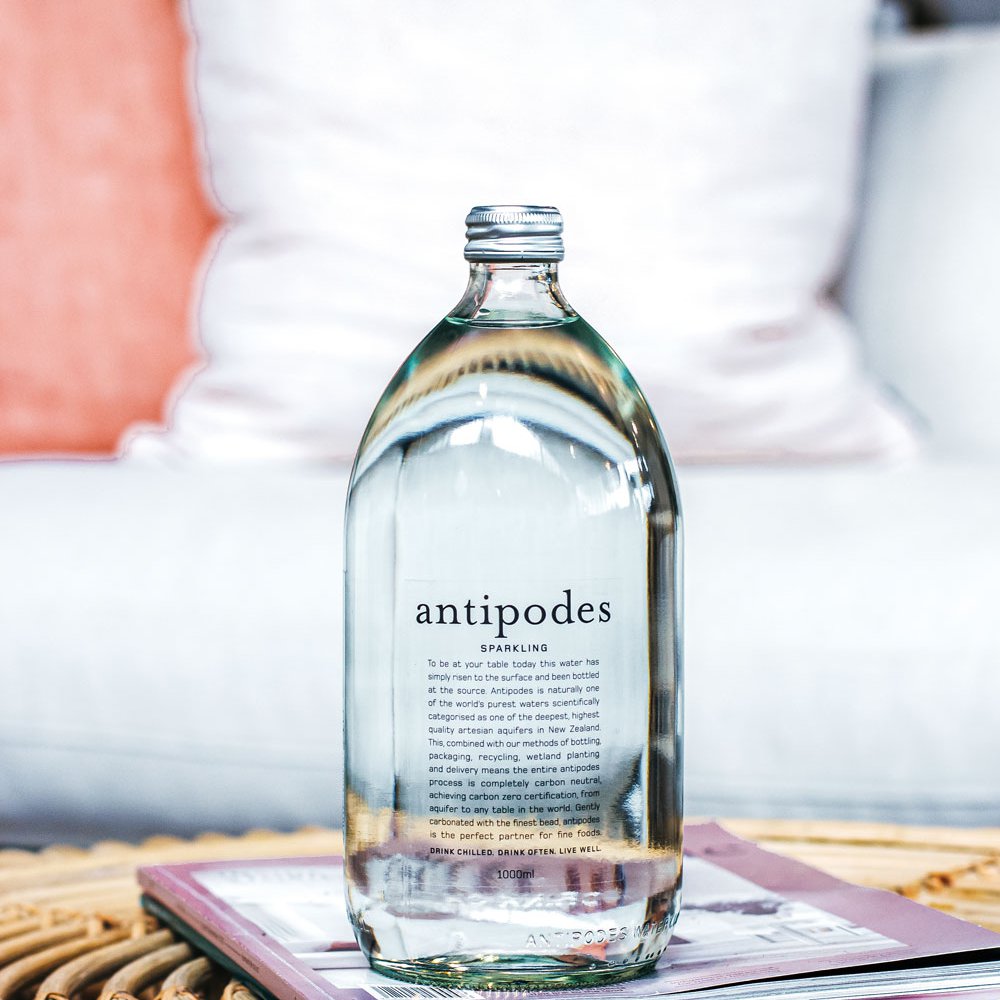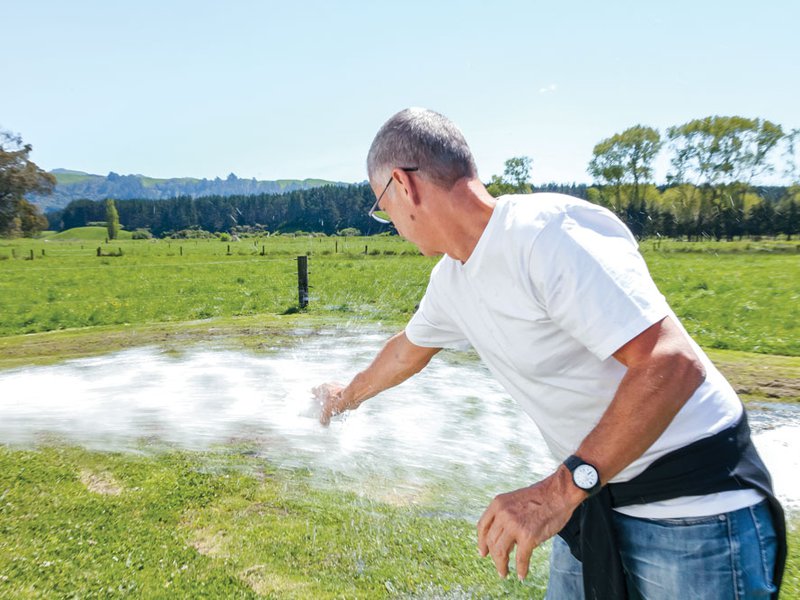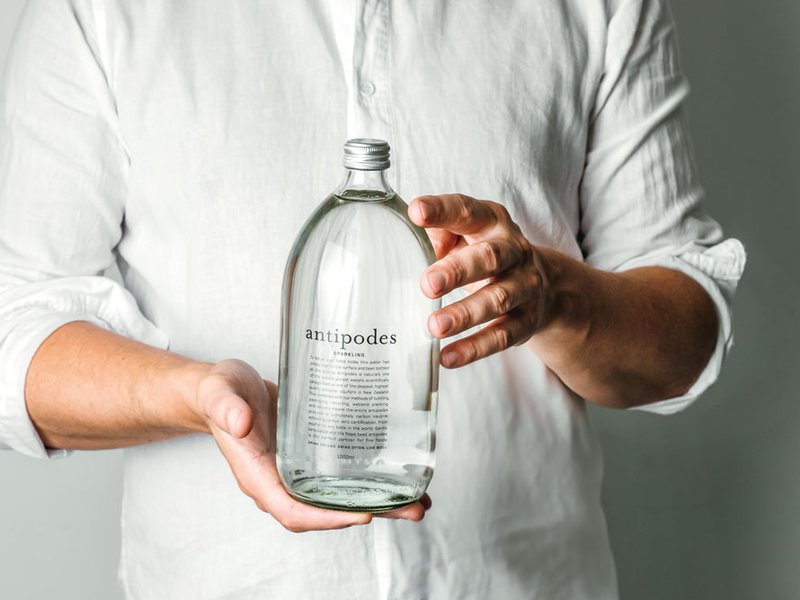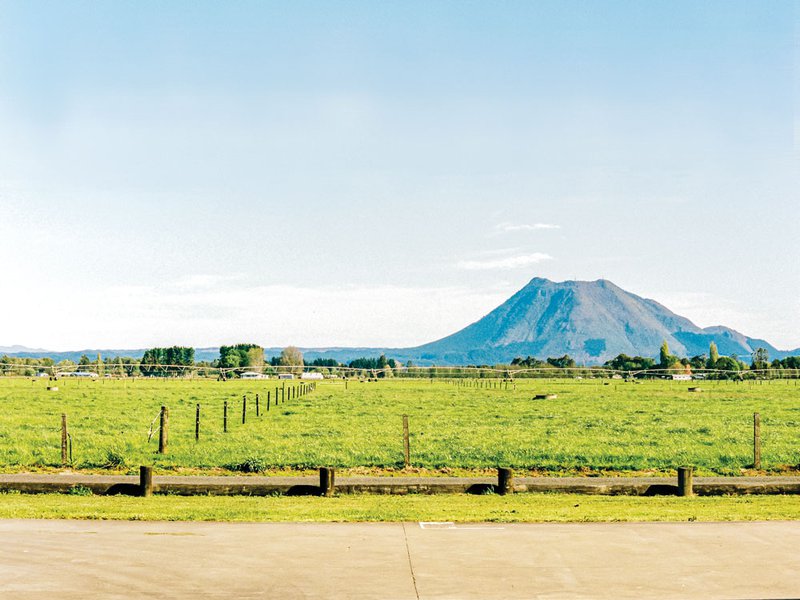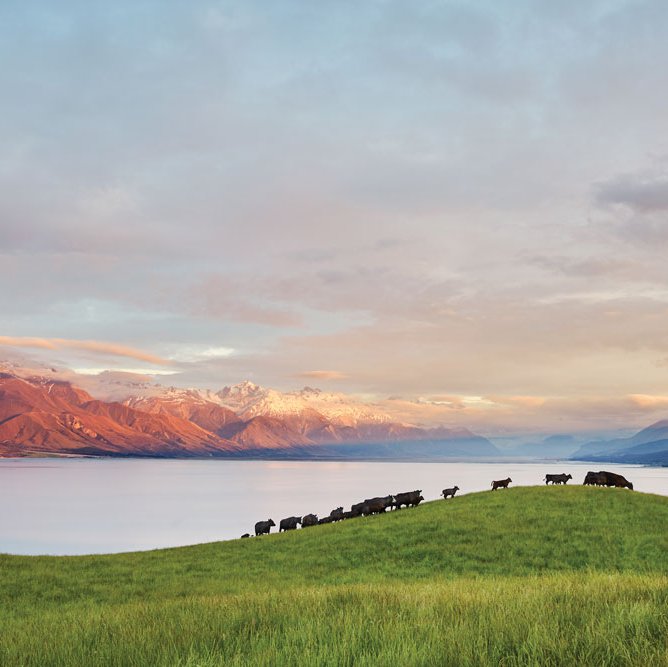Antipodes is the world’s first carbon-zero bottled water. We speak to the company’s passionate founder Simon Woolley about his products, sustainability and why he wants to do everything, right
As the first Maori tribes settled Aotearoa (New Zealand) they found a fertile region, ripe for cultivation, stretching inland along the east coast of the North Island. This region later became known as the Bay of Plenty, a fitting name given the abundance of picturesque coastal mountains, vast lakes and rich farmlands. It’s also the home of much loved New Zealand water brand Antipodes, the world’s first carbon-zero bottled water.
The water is sourced from New Zealand’s deepest, high-quality artesian aquifer where it journeys for between 50 and 300 years from the earth’s surface through dense ignimbrite rock, particularly high in silica because it used to flow as lava. That volcanic origin, explains Antipodes founder Simon Woolley, “is what gives us this amazingly soft water, with its beautiful almost sweet taste”.
Originally from Auckland, Simon had never even been to the Bay of Plenty until he was sourcing the ideal water for this new business some 20 years ago. Once he found it, he moved and never left. While chatting over Zoom for this interview, he turns his laptop screen to share his view, pointing across the Rangitāiki Plains and over coastal hills toward the Antipodes aquifer, which rises under its own pressure (“about the same as in a car tyre,” he says) from a depth of 327 metres, to emerge into the sea 18 kilometres offshore. There’s no need for the company to pump it, as they would from a reservoir, nor to process it, as many other brands are required to do.
His is a “boutique” business, as Simon puts it, where the main competitors are much bigger European names owned by giants like Coca-Cola. They entirely dominated the market when he used to work in hospitality, and when he returned to New Zealand after stints living in London, New York and Mexico, he couldn’t quite understand why Kiwi restaurants didn’t yet have a local bottled water to serve, especially in a land that advertises itself as “100% Pure”.
Simon knows the ad guys who developed that slogan and it has “done a good job for New Zealand”, but when he and his partners started testing candidates for Antipodes, they sent samples to a lab in Frankfurt, partly because “EU standards were the highest in the world at the time”. Many proved not as pure as they seemed, while others, especially a few from the South Island, were indeed so clean that they tasted a bit flat. Or, “almost distilled”, according to another friend Simon brought in as a consultant, master sommelier Michael Brajkovich.
“Michael said, ‘If you want a water that goes well with food, then you need something that has a flavour, a terroir, a presence’.” This helped confirm Simon’s own choice, which was and is the best he’s ever tasted. “I sometimes worry that I’ll find one I prefer, but it hasn’t happened.” And, as he always hoped, Antipodes has since become the water of choice for New Zealand restauranteurs, partly through a process of education on the subject.
“These people are experts on food and beverages, but I’d ask them about the water on their menus and they wouldn’t know. And they hated that they didn’t know. So I’d go in to sell Antipodes and say, let’s taste from 12 different bottles and see which one you like… ”
Value is added by the crystal clear design of the Antipodes bottle itself and the fact that Simon refused to compromise on carbon neutrality before that concept seemed fashionable, or even possible. “It was a nightmare in the beginning. The packaging company thought I was an idiot, using clear, recycled glass rather than green or brown and so on.”
Things changed, he says, with the release of Al Gore’s environmental documentary An Inconvenient Truth in 2006. “Suddenly, suppliers were calling us and asking what they should do to improve.” By 2009 Antipodes was made a case study at the Copenhagen Climate Change Conference, an exemplar of “starting a company the way you should”.
Ongoing practices range from use of solar power, to planted wetlands that catch runoff, to spending carbon credits on sustainability projects elsewhere, most recently a wind farm in India. As Antipodes exports to various markets, the carbon footprint of every container ship and business flight, not to mention every phone call and email, is also tracked and offset. “I just wanted to do the right thing,” says Simon.
“The goal was always a pure, living water, a product for the future, a real reflection of contemporary New Zealand. A truly kiwi brand that would still be around in 100 years.”
